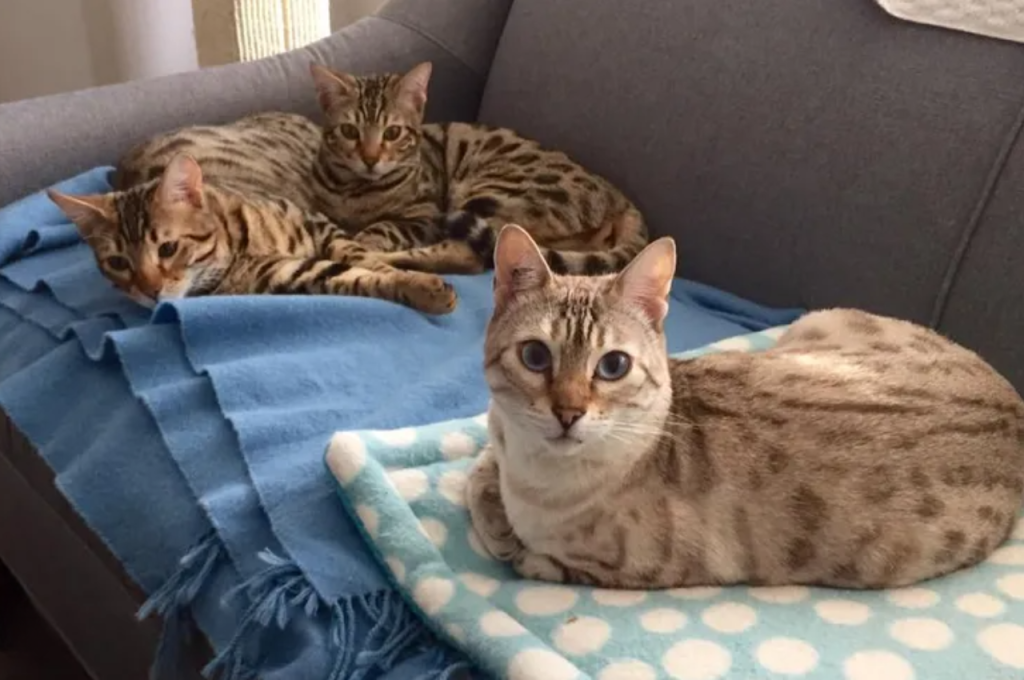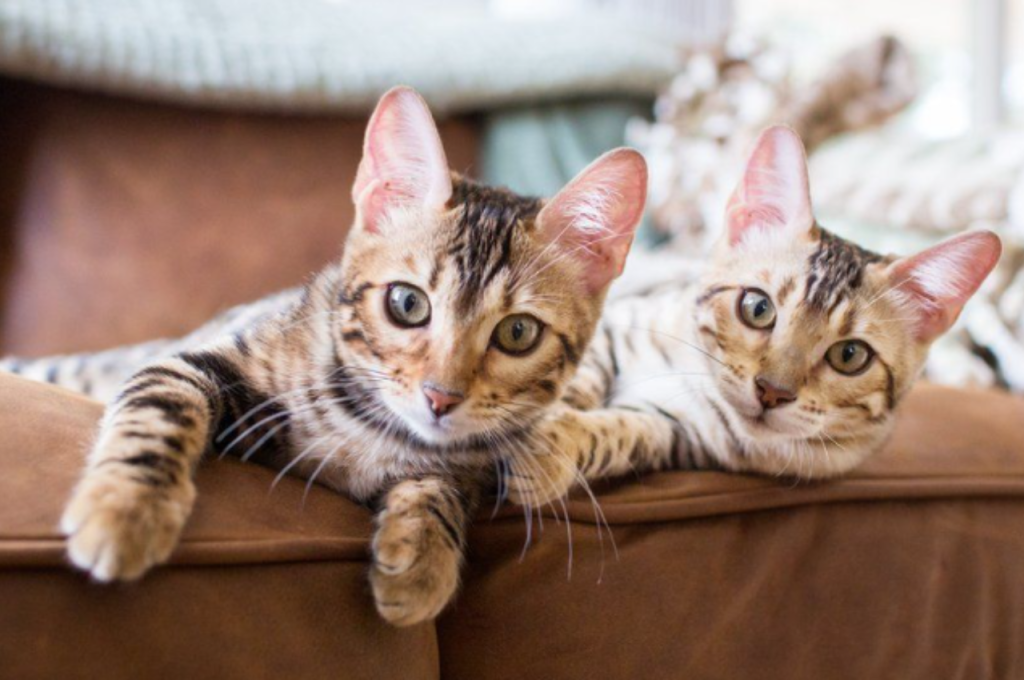Cats can remember their mom for up to several weeks after being separated. This memory can last for quite a while.
When considering the memory span of cats, the bond between a mother cat and her kittens is significant. During the early stages of a kitten’s life, their mother plays a crucial role in their development. Kittens rely on their mom for warmth, food, comfort, and protection.
This bond forms a strong memory imprint that can last beyond the weaning stage. As they grow, kittens start to explore the world around them, but the memory of their mother’s scent and presence remains ingrained. Understanding the lasting impact of this maternal bond sheds light on the intricate social behaviors of our feline companions.
The Importance of Maternal Bonding
Cats form strong maternal bonds that last a lifetime, remembering their mom for a long time. This bond helps them develop social skills and emotional stability, making it important for their overall well-being and behavior. Research suggests that cats can remember their mother for a significant period, emphasizing the significance of maternal bonding in the feline world.

Nurturing Kittens from Birth
Cats start bonding with their mom from an early age.
- Cater to their basic needs like feeding and grooming.
- Provide a sense of safety and security for the kittens.
Teaching Social Skills
Maternal bonding plays a crucial role in kittens’ development.
- Mom teaches them how to communicate through vocalizations.
- They learn valuable social cues from their mom’s behavior.
Memory Development in Newborn Kittens
In the early stages of a kitten’s life, memory development plays a crucial role in shaping their cognitive abilities and behaviors.
The Role of Early Experiences
Early experiences with their mother contribute significantly to how long kittens remember her, laying the foundation for their memory development.
Rapid Brain Development
During the early weeks of life, kittens undergo rapid brain development, which enhances their capacity to form memories and retain them for extended periods.
Cognitive Abilities in Adult Cats
Adult cats have impressive cognitive abilities, but their memory of their mother may fade over time. While their memory can vary, cats typically remember their mom for several weeks or even months after being separated.
Adult cats possess remarkable cognitive abilities that contribute to their survival and overall well-being. Understanding these capabilities enhances our appreciation for their intelligence and reinforces the unique bond we share with our feline friends. In this article, we will delve into two specific cognitive abilities of adult cats: spatial memory and recognizing familiar faces.
Spatial Memory
Cats possess an extraordinary spatial memory, enabling them to navigate and remember their surroundings with precision. This remarkable ability allows them to find their way home or navigate familiar territories effortlessly. Research suggests that cats have a specialized brain area called the hippocampus that is responsible for spatial memory. This region helps them create cognitive maps of their environment, enabling them to remember the locations of food sources, hiding spots, and safe routes.
This remarkable spatial memory highlights the importance of providing a stable and consistent environment for our feline companions. By maintaining a familiar and predictable living space, we can help alleviate stress and anxiety for our cats, promoting their well-being and mental acuity.
Recognizing Familiar Faces
Another intriguing cognitive ability of adult cats is their capability to recognize familiar faces, including their mother, even after an extended period of separation. This ability is essential for establishing and maintaining social bonds. Research suggests that cats rely on their visual memory and facial recognition skills to distinguish between individuals, both human and feline.

In studies involving cats and their owners, researchers found that cats reacted more positively to familiar faces, exhibiting behaviors such as purring, rubbing against their owners, and seeking affection. This recognition demonstrates their ability to form strong emotional connections and reinforces the significance of human-cat bonding.
It is important to note that while cats possess impressive cognitive abilities, they do have certain limitations compared to other animals, including dogs. However, their unique cognitive skills contribute to their exceptional adaptability and independence as solitary animals.
Long-term Memory
Cats possess remarkable long-term memory. Studies suggest they remember their mothers for life, emphasizing the strong familial bonds in feline relationships. This enduring memory contributes to the complex social dynamics observed in these animals.
In a cat’s long-term memory, information is stored and retrieved through a complex process that involves various areas of the brain. When a cat experiences something memorable, the information is processed and stored in different regions of the brain for future retrieval. When a cat remembers its mother long-term, it is the result of this intricate storage and retrieval process.
Time frame of cat’s memory cats have an impressive ability to retain long-term memories, often remembering their mother for many years. This extraordinary memory retention is essential for survival in the wild and serves as a testament to the strong bonds formed during the early stages of a cat’s life.
Factors Influencing Memory Retention
Memory retention is a complex process influenced by various factors that impact how information is encoded, stored, and retrieved in the brain. Understanding these factors can provide valuable insights into enhancing memory performance and optimizing learning experiences.
Emotional Significance
Cats are deeply affected by emotional significance. If the bond with their mother is strong and nurturing, they are likely to retain memories for a longer time.
Repetitive Experiences
Repetitive experiences play a crucial role in a cat’s memory retention. If a kitten had repetitive positive experiences with its mother, it is more likely to remember her for an extended period.
Separation Anxiety in Cats
Cats are known for their incredible memory, but have you ever wondered how long they remember their mom? When it comes to separation anxiety in cats, the bond between a mother cat and her kittens plays a crucial role.
Effects of Mother-offspring Separation
When kittens are separated from their mother too soon, it can have lasting effects on their emotional well-being. Such early separations can lead to separation anxiety in cats later in life. Kittens learn crucial social and survival skills from their mother during their early weeks. These skills include hunting, grooming, and how to interact with other cats.
The effects of mother-offspring separation on cats include:
- Increased stress levels
- Difficulty in forming strong social bonds
- Reduced confidence and independence
- Heightened anxiety during separation
It’s important to understand that the length of time cats remember their mom varies from one cat to another. Some cats may remember their mom for a few months, while others may have a lifelong memory of her.
Managing Separation Anxiety
Separation anxiety in cats can be distressing for both the cat and its owner. However, there are several strategies you can implement to help your furry friend cope better when you’re not around. Here are some tips:
- Gradual Separation: Start by leaving your cat alone for short periods and gradually increase the duration. This helps them get used to being alone.
- Environmental Enrichment: Provide your cat with stimulating toys, scratching posts, and interactive activities to keep them distracted and engaged.
- Comforting Spaces: Create comfortable spaces for your cat, such as a cozy bed or a designated hiding spot, where they can retreat when they feel anxious.
- Calming Techniques: Consider using calming products like pheromone diffusers or adding soothing scents to your cat’s environment.
- Seek Professional Help: If your cat’s separation anxiety persists or worsens, it’s essential to consult with a veterinarian or an animal behaviorist for guidance.
Building Strong Feline Bonds
Cats have a remarkable ability to form strong emotional bonds, particularly during their early stages of life. Understanding how long cats remember their mom can shed light on the importance of these early connections.
Encouraging Positive Associations
Creating positive associations can help strengthen the bond between a cat and its caregiver. Using treats and playtime can create joyful experiences that your cat will remember.
Creating A Secure Environment
Providing a secure and comfortable environment for your cat is crucial for building trust. Ensure they have a cozy bed, sufficient food and water, and a safe space to retreat when needed.
Understanding the Feline Memory Mystery
Cats possess a remarkable and somewhat enigmatic memory, which significantly shapes their interactions with the world around them. This memory capacity is instrumental in guiding their behavior, responses, and relationships with humans and other animals alike. Understanding the intricacies of feline memory can provide valuable insights into their cognitive abilities and enhance our understanding of their behavior patterns.

Unraveling Complexities
The memory of cats can last up to 16 years, allowing them to remember their mother for a long time.
Implications for Cat Owners
Understanding how long cats remember their mom can impact how owners care for and understand their pets’ behavior.
Conclusion
Remembering their mother is a crucial aspect of a cat’s early development and emotional bonding. While the exact duration remains uncertain, cats can retain memories of their mother for significant periods. This connection plays a vital role in shaping their behavior and social interactions throughout their lives.
Understanding the enduring bond between cats and their mothers enables us to provide better care and support for their overall well-being.
